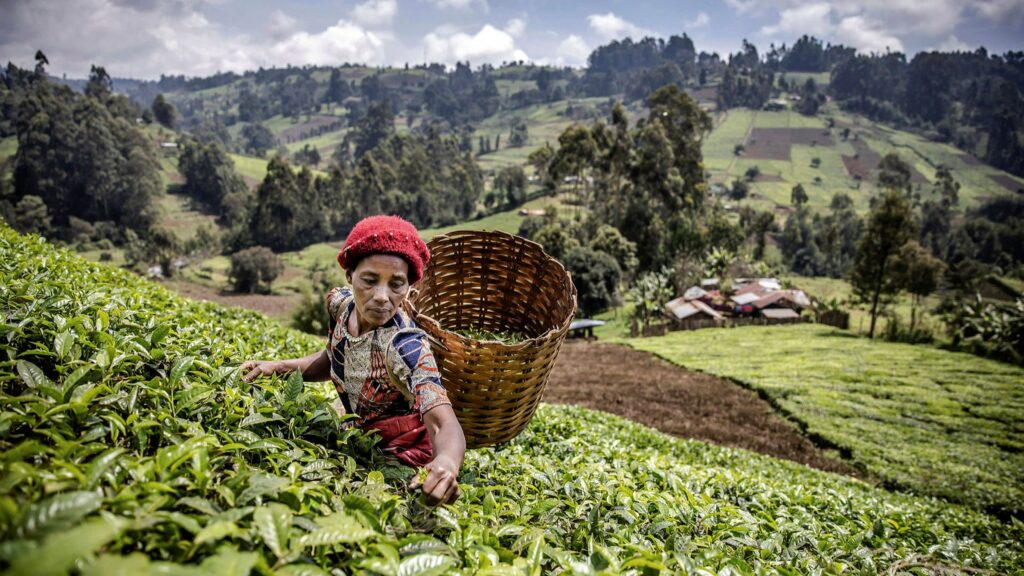Chair of African Union: We are tired of waiting — Africa must be a priority for COP26


The writer is president of the Democratic Republic of Congo and chair of the African Union
Africa is tired of waiting. For vaccines to protect our people against Covid-19; for investment to ease the worst recession in 25 years; and for help to deal with the increasingly devastating impacts of climate change.
Tired of waiting, African countries have come together to design an African-led and African-owned plan to respond to the Covid-19 and climate emergencies. It is radically different to anything we have tried before. First, because the old recipes for economic development have often contributed to climate change. Second, because the challenges we face are of such magnitude that they require a totally fresh approach.
Climate change could wipe out 15 per cent of Africa’s gross domestic product by 2030. This means an additional 100m people in extreme poverty by the end of the decade. This is a cruel fate for a continent that contributes so little to global warming.
Our way out is to strengthen our ability to respond and adapt to climate change. That’s why the African Union, working with the Global Center on Adaptation, the African Development Bank and other partners, is endorsing the Africa Adaptation Acceleration Program. The programme aims to spend $12.5bn over five years, in addition to the $12.5bn already pledged by the African Development Bank, on climate-proofing, creating new jobs and modernising key economic sectors to support upstream efforts to integrate climate adaptation investments at the national level. We know that $25bn over five years is not enough to fully adapt. But it is a start.
One area that shows great potential is digital technologies and services for farmers. Digital connectivity gives access to real-time agricultural advice, information on market prices and weather forecasts; it is the gateway to digital bank accounts, loans and crop insurance, and more efficient landscape restoration efforts. The African Development Bank has already helped 19m farmers in 27 countries to lift yields by an average of 60 per cent through applying digital technology. Scale up these services quickly and Africa will be able to feed its 2.5bn people safely and sustainably by 2050. The application of digital technologies could transform Africa’s agriculture and agribusiness sectors, currently worth $300bn, into a $1tn market by 2030.
Digital start-ups in agricultural services are also a good vehicle for private sector investment. The returns are high — weather and climate information services are vital for sustainable development and climate service investments overall have a cost-benefit ratios of 1 to 10. In addition, they are a big pull for young people and a promising new source of employment.
New financial instruments such as green bonds could help support investment in resilient infrastructure. With most of Africa’s infrastructure yet to be built, making the continent’s infrastructure resilient adds only an average of 3 per cent to total costs. Yet every dollar spent on infrastructure could yield $4 of broader economic benefit. It is simply good maths.
In the run-up to the COP26 climate summit in Glasgow, some of the world’s wealthiest nations are promising to make good their 2009 pledge to spend $100bn a year mitigating climate change in the developing world.
We know they have many options, but the African Union urges them to consider funding our adaptation programme first. Because it is Africa’s plan, and because its aims are realistic, necessary and achievable. Five billion dollars a year is a small change — the world spent $20tn to fight Covid-19 — but the key is that this initial capital will help Africa to create much more, through new financial instruments and by de-risking resilience projects to attract private investors. For example, Africa is still playing catch-up in relation to green-bond financing, raising less than $8bn out of a global total of $539bn in 2020.
Twenty-five billion dollars over five years is a drop in the ocean compared to the challenges we face. But we believe it is the floor, not a ceiling, for adaptation finance. To successfully fight climate change, after COP26 there must be a clear plan for deploying the huge resources needed. The African Union sees the adaptation plan as central to this. What it requires is global actions and firm resource commitments.
Let us remember that Africa’s ecosystems provide free crucial services to the world. African forests and oceans serve as natural carbon sinks. It is time for Africa to be compensated — for the good of the continent and the planet. We have waited long enough.
As part of our coverage of COP26 we want to hear from you. Do you think carbon pricing is the key to tackling climate change? Tell us via a short survey. We will share some of the most interesting and thought provoking answers in our newsletters or an upcoming story.